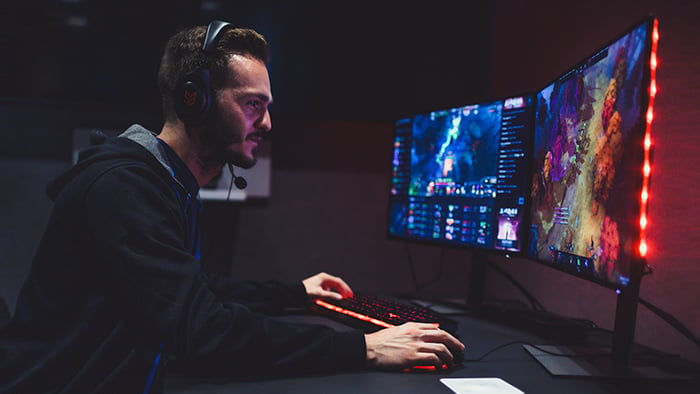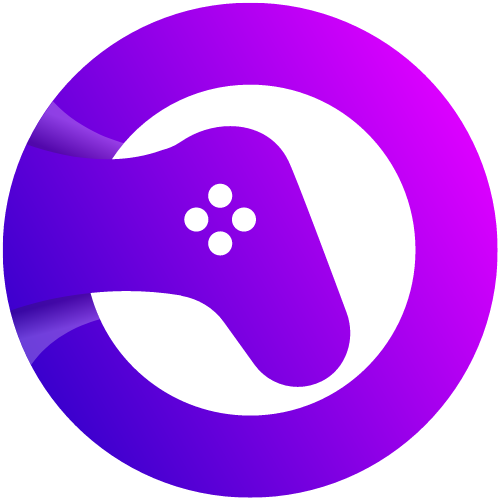For gaming, aim for at least 16GB of RAM to ensure smooth performance and optimal gameplay experience. Investing in sufficient RAM capacity is essential for gaming enthusiasts seeking high frame rates and seamless gameplay without any lags.
With the increasing demands of modern gaming titles, having ample RAM can significantly enhance your gaming experience. Additionally, a higher RAM capacity allows for faster loading times, smoother multitasking, and better overall system performance. Whether you are into competitive eSports or playing graphically intensive AAA titles, having the right amount of RAM can make a noticeable difference in your gaming setup.
Therefore, consider upgrading your RAM to maximize your gaming potential and stay ahead in the gaming world.
Why Ram Is Crucial For Gaming
RAM, or Random Access Memory, is a crucial component for an optimal gaming experience. It directly impacts game performance and loading times, making it an essential consideration for gaming enthusiasts looking to enhance their gameplay.
Impact On Game Performance
The amount of RAM in a gaming system directly affects its performance. More RAM allows the system to handle resource-intensive tasks, such as rendering complex game scenes and processing in-game elements, efficiently. Insufficient RAM can lead to lagging, stuttering, and overall reduced gaming performance. With adequate RAM, games can run smoothly and provide an immersive gaming experience.
Influence On Loading Times
RAM plays a significant role in reducing loading times during gaming. When a game is launched or transitioning between levels, quick access to data stored in RAM enables rapid loading. Having ample RAM ensures that games load swiftly, minimizing waiting time and enhancing the overall gaming experience.
Minimum Vs. Recommended Ram For Gaming
Understanding Minimum Ram Requirements
Minimum RAM refers to the least amount required for a game to run without performance issues.
- Provides basic functionality.
- May lead to lagging and slow loading times.
Benefits Of Opting For Recommended Ram
Recommended RAM enhances gaming experience and prevents lags.
- Ensures smooth gameplay.
- Reduces loading times.
- Enhances graphics quality.
Ram Requirements For Popular Games
When it comes to gaming, having enough RAM is essential for smooth gameplay and optimal performance. The amount of RAM you need for gaming largely depends on the types of games you play. In this section, we’ll explore the RAM requirements for popular games, including AAA titles and online multiplayer games.
Ram Specifications For Aaa Titles
AAA titles, known for their high-quality graphics and immersive gameplay, typically require more RAM to run smoothly. To ensure a seamless gaming experience, it’s recommended to have at least 8GB of RAM for most AAA titles. However, for more demanding games or future-proofing your system, having 16GB or even 32GB of RAM can be beneficial.
Ram Needs For Online Multiplayer Games
Online multiplayer games, such as Fortnite or Call of Duty: Warzone, often involve real-time interactions with other players. These games require not only an internet connection but also sufficient RAM to handle the increased load. For online multiplayer games, having 8GB of RAM is typically the minimum requirement to ensure smooth gameplay without any lag or hiccups. However, to avoid any performance issues and ensure a seamless multiplayer experience, having 16GB or even 32GB of RAM is highly recommended.
In summary, the RAM requirements for gaming depend on the types of games you play. For AAA titles, having at least 8GB of RAM is recommended, while online multiplayer games typically require a minimum of 8GB to avoid any performance issues. However, having 16GB or even 32GB of RAM for both types of games can future-proof your system and provide an optimal gaming experience.

Credit: www.avast.com
The Impact Of Ram On Gaming Experience
The amount of RAM (Random Access Memory) in a gaming system plays a crucial role in determining the overall gaming experience. RAM affects various aspects of gaming performance, including frame rates, smooth gameplay, and the prevalence of stuttering and lag issues. To fully understand the impact of RAM on gaming, let’s delve into each of these factors.
Frame Rates And Smooth Gameplay
One of the key benefits of having sufficient RAM is achieving higher frame rates, resulting in smooth gameplay. Frame rates refer to the number of images displayed per second, and a higher frame rate ensures a more fluid and visually appealing gaming experience.
When a game is running, various data and game assets need to be stored in RAM for quick access. Having a larger amount of RAM allows for more data to be stored, minimizing the need for constant loading and unloading from slower storage devices like hard drives. This leads to faster data retrieval and improved overall game performance.
Adequate RAM also enables the system to preload and cache game assets, reducing loading times and ensuring a seamless gaming experience. Faster loading times mean less waiting and more time spent playing, enhancing the immersive nature of games.
Stuttering And Lag Issues
Insufficient RAM can result in frustrating stuttering and lag issues that disrupt gameplay and hinder the overall gaming experience. Stuttering refers to the sudden halts or freezes that occur during gameplay, making it difficult to control characters or accurately execute moves. Lag, on the other hand, is the delay between pressing a button and the corresponding action occurring in the game.
These issues are often caused by the system being unable to quickly retrieve and process the necessary data due to limited RAM. When this happens, the game may have to rely on slower storage devices, leading to momentary delays and interruptions in gameplay.
To ensure smooth and uninterrupted gaming, having an ample amount of RAM is crucial. With enough RAM, the system can handle data demands efficiently, minimizing stuttering and lag issues and allowing for an immersive and enjoyable gaming experience.
Upgrading Ram For Gaming
Thinking about enhancing your gaming experience through adding more RAM to your system? Taking the leap to upgrade your RAM can significantly boost your gaming performance. Let’s delve into some key considerations when upgrading your RAM for gaming.
Assessing Current System Ram
Check your current system’s RAM capacity to understand if an upgrade is needed for better gaming performance.
- Determine the total amount of RAM currently installed in your system.
- Identify the type of RAM modules your system supports.
- Assess how much RAM your games require to run smoothly.
Choosing The Right Ram For Upgrade
When selecting RAM for gaming upgrades, it’s essential to choose the right type and capacity to meet your gaming needs effectively.
- Consider DDR4 RAM for optimal performance in modern gaming systems.
- Choose a RAM capacity that aligns with your gaming requirements and system compatibility.
- Look for RAM with higher clock speeds to enhance gaming performance.

Credit: kittdigital.com
Optimizing Ram For Gaming Performance
Maximize gaming performance by optimizing RAM. When it comes to how much RAM for gaming, aim for at least 16GB for seamless gameplay experiences. Upgrade your RAM to enhance speed and responsiveness during intense gaming sessions.
Memory Management Techniques
Effective memory management is crucial for achieving optimal gaming performance. By implementing certain techniques, you can ensure that your RAM is utilized efficiently, leaving more resources available for your games. One important memory management technique is closing unnecessary background applications. These applications consume valuable RAM and can significantly affect your gaming experience. Therefore, it is recommended to close any programs running in the background that are not essential to your gaming session.
Overclocking And Xmp Profiles
Overclocking allows you to push your RAM beyond its stock speed, resulting in improved gaming performance. This process involves increasing the frequency and voltage of your RAM, which can boost its performance. However, it’s important to note that overclocking should be done carefully and within limits to avoid stability issues. Additionally, XMP (Extreme Memory Profile) profiles can help gamers optimize their RAM settings. XMP profiles are pre-configured settings that are designed to maximize the performance of your RAM without manual tweaking. These profiles are straightforward to enable in the BIOS, making them an accessible option for gamers of all levels of technical expertise.
Common Myths About Ram And Gaming
Worried about how much RAM you need for gaming? Let’s debunk some myths. More RAM doesn’t always mean better gaming performance, it’s about finding the right balance for your setup. Opt for 16GB for modern games, and consider more for multitasking or future-proofing.
Gaming enthusiasts are often bombarded with conflicting information about how much and what type of RAM they should have for the best gaming experience. However, there are several common myths surrounding RAM and gaming that need to be debunked. Let’s take a closer look at these myths and understand the reality behind RAM’s impact on gaming performance.
More Ram Guarantees Better Performance
One prevalent myth is the belief that the more RAM you have, the better your gaming performance will be. While RAM is undeniably crucial for gaming, simply throwing more of it into your system does not guarantee an automatic boost in performance. The reality is that once your system has enough RAM to handle the game’s requirements, adding more RAM will have diminishing returns.
Think of RAM as a workspace for your computer. Just like a cluttered desk, having more workspace can make things smoother, but only up to a certain point. Once you have enough space to accommodate all the necessary tasks, additional workspace won’t make a significant difference in overall performance.
The key here is to ensure you have enough RAM to comfortably run your games and any additional software you may have open simultaneously. This will prevent your system from constantly swapping data in and out of the RAM, which can lead to performance hiccups.
Faster Ram Is Always Superior
Another myth surrounding RAM and gaming is the notion that faster RAM is always superior. While higher clock speeds on RAM modules may seem enticing, it’s important to note that the impact of faster RAM on gaming performance can be minimal in many cases.
RAM speed primarily has a noticeable effect in scenarios where the CPU is the bottleneck for performance, a situation that rarely occurs in modern gaming setups. Most games heavily rely on the power of the GPU (Graphics Processing Unit) rather than the speed of RAM.
That being said, there are specific instances where faster RAM can make a difference. For example, if you’re running memory-intensive tasks alongside your gaming sessions, such as video editing or streaming, faster RAM can help reduce bottlenecks and improve overall performance.
Ultimately, when choosing RAM for gaming, it’s essential to strike the right balance between capacity and speed that aligns with your specific gaming and usage needs. Don’t fall for the misconception that more and faster RAM always translates to better gaming performance. Understanding the reality behind these myths will help you make informed decisions when upgrading your gaming rig.
Future Ram Trends In Gaming
As gaming technology advances, the demand for RAM in gaming systems continues to evolve. Let’s delve into the future RAM trends in gaming and explore the key factors that will impact RAM requirements.
Impact Of Game Development On Ram Needs
Modern games require higher RAM capacities due to their complex graphics and AI functionalities. Developers keep pushing the boundaries, making games more immersive, which in turn increases the RAM usage.
Advancements In Memory Technology
New memory technologies like DDR4 and emerging DDR5 are increasing data transfer rates and efficiency, allowing for quicker access to game assets and smoother gameplay experiences.
Frequently Asked Questions For How Much Ram For Gaming
Is 32 Gb Ram Overkill For Gaming?
No, 32 GB RAM isn’t overkill for gaming. It can enhance performance for demanding games and multitasking.
Is 16 Or 32gb Ram Good For Gaming?
16 or 32GB RAM is good for gaming. This helps to enhance performance and handle intensive game requirements. More RAM allows for smoother gameplay and multitasking. Choose based on your specific needs and budget.
Do I Really Need 16gb Of Ram For Gaming?
Yes, 16GB of RAM is ideal for smoother gaming performance with modern games and multitasking capabilities.
Do You Need 32gb Of Ram?
No, 32GB of RAM is not necessary for most users. 16GB of RAM is typically sufficient for everyday tasks like web browsing, office work, and multimedia consumption. 32GB is beneficial for professionals such as video editors or graphic designers who require extensive multitasking or work with large files.
Conclusion
In choosing RAM for gaming, prioritize higher capacity for optimal performance. Be mindful of compatibility with your system. Remember, more RAM means smoother gameplay. Consider your budget and requirements before making a decision. Pick the right RAM for an enhanced gaming experience.



